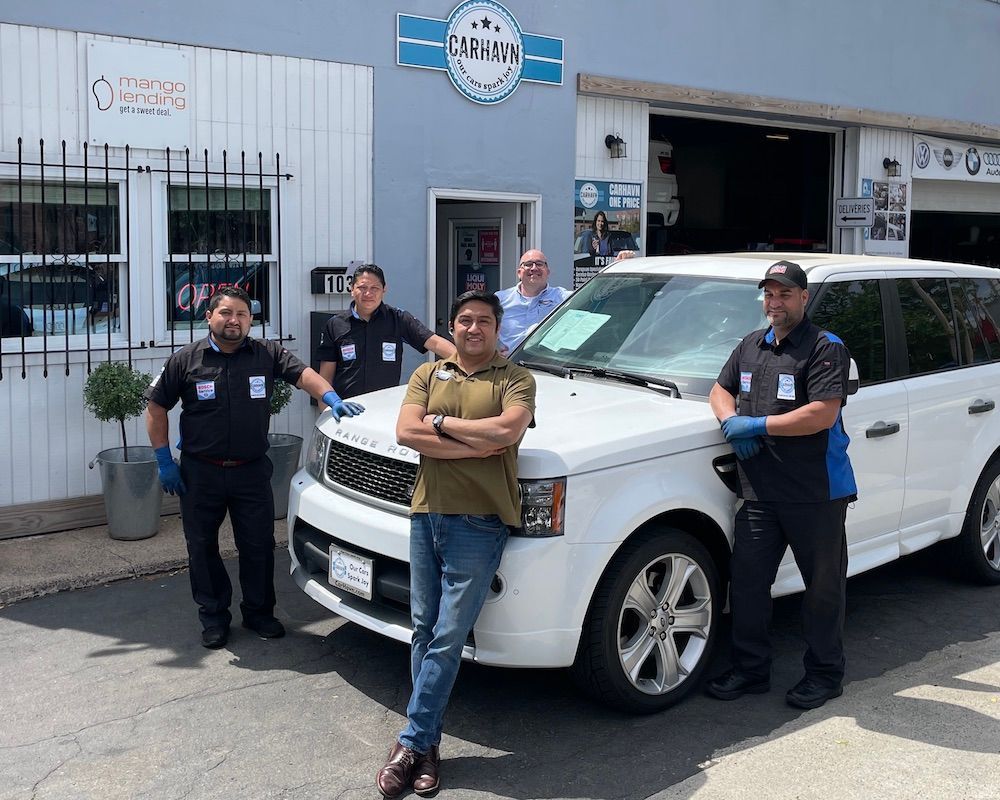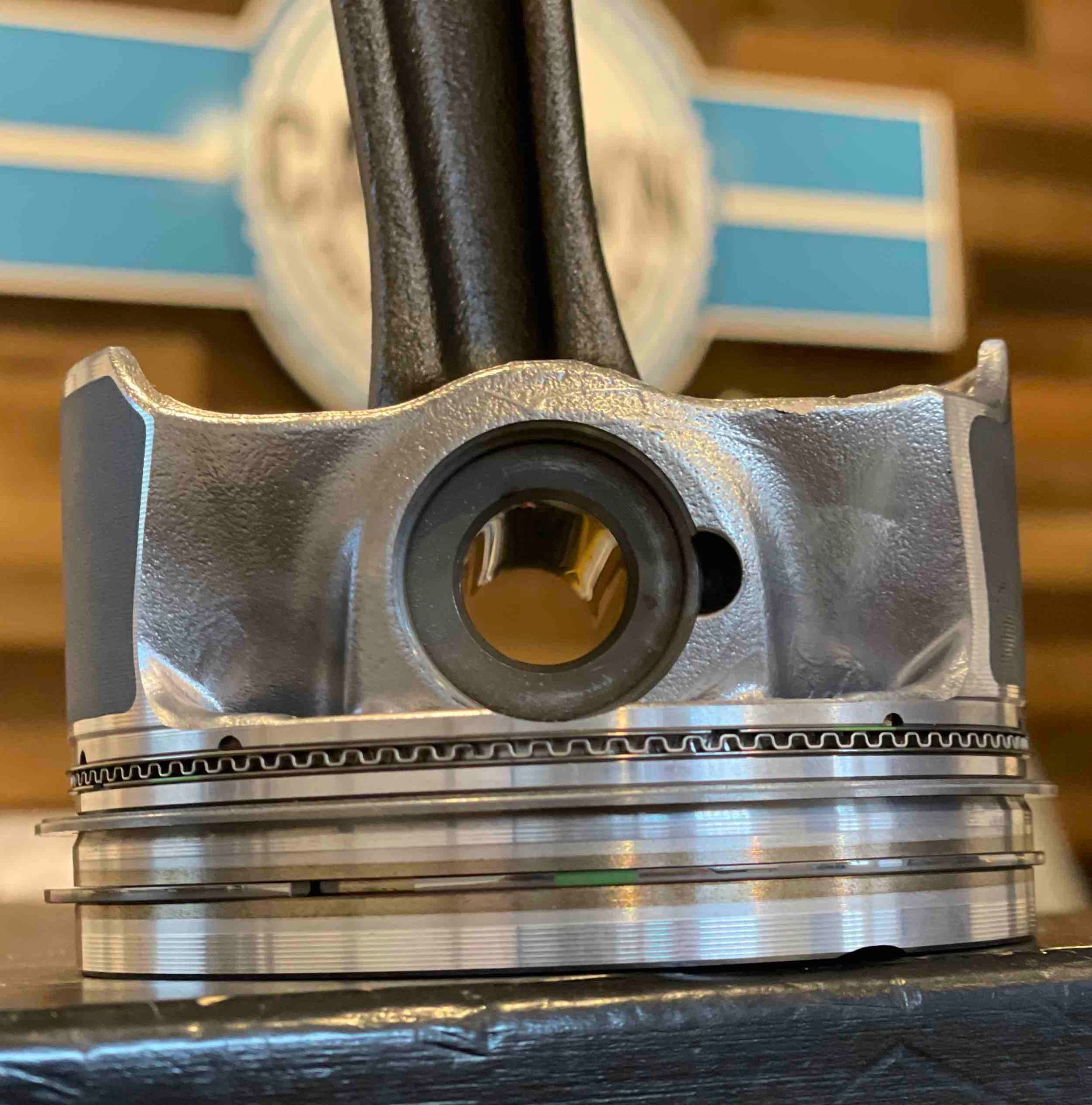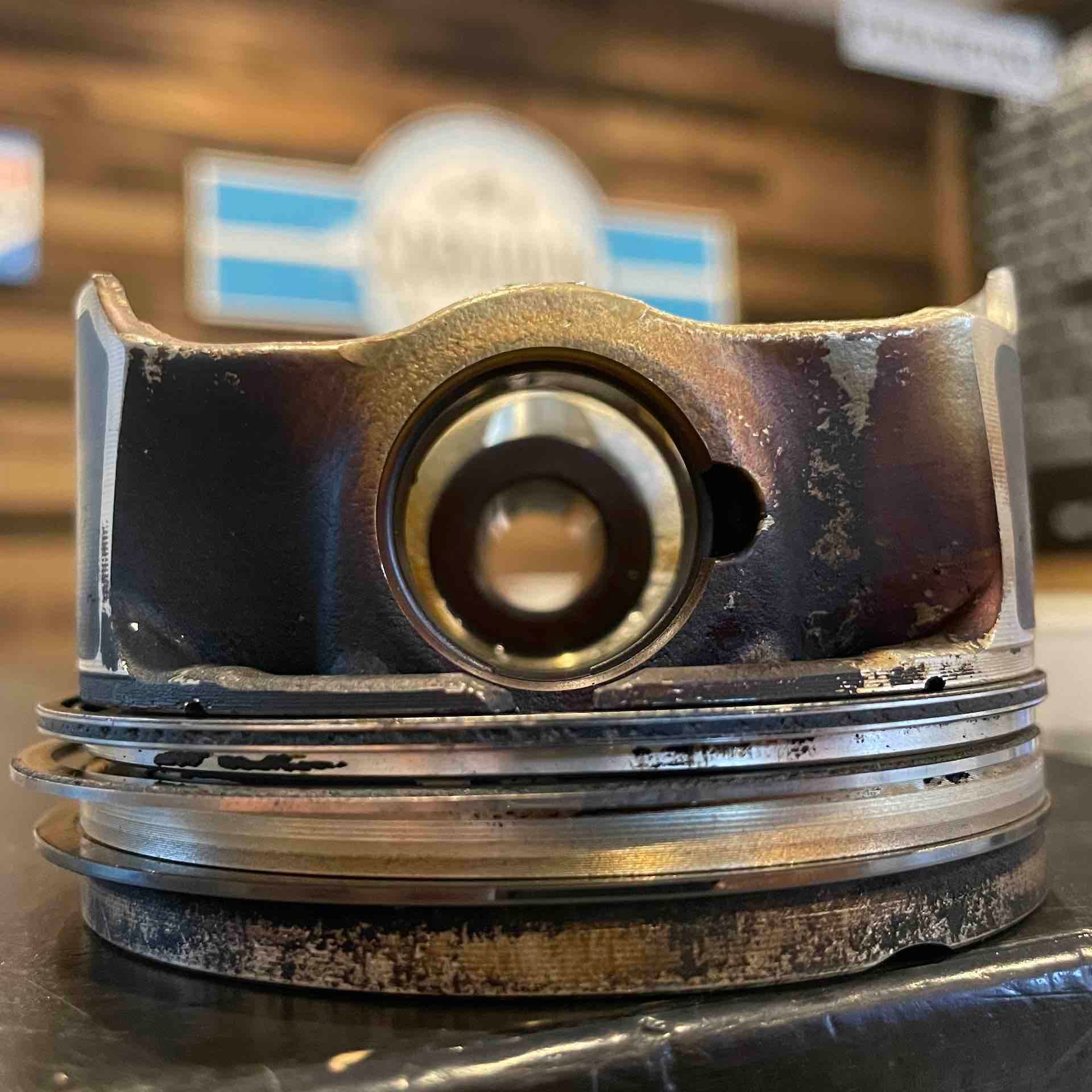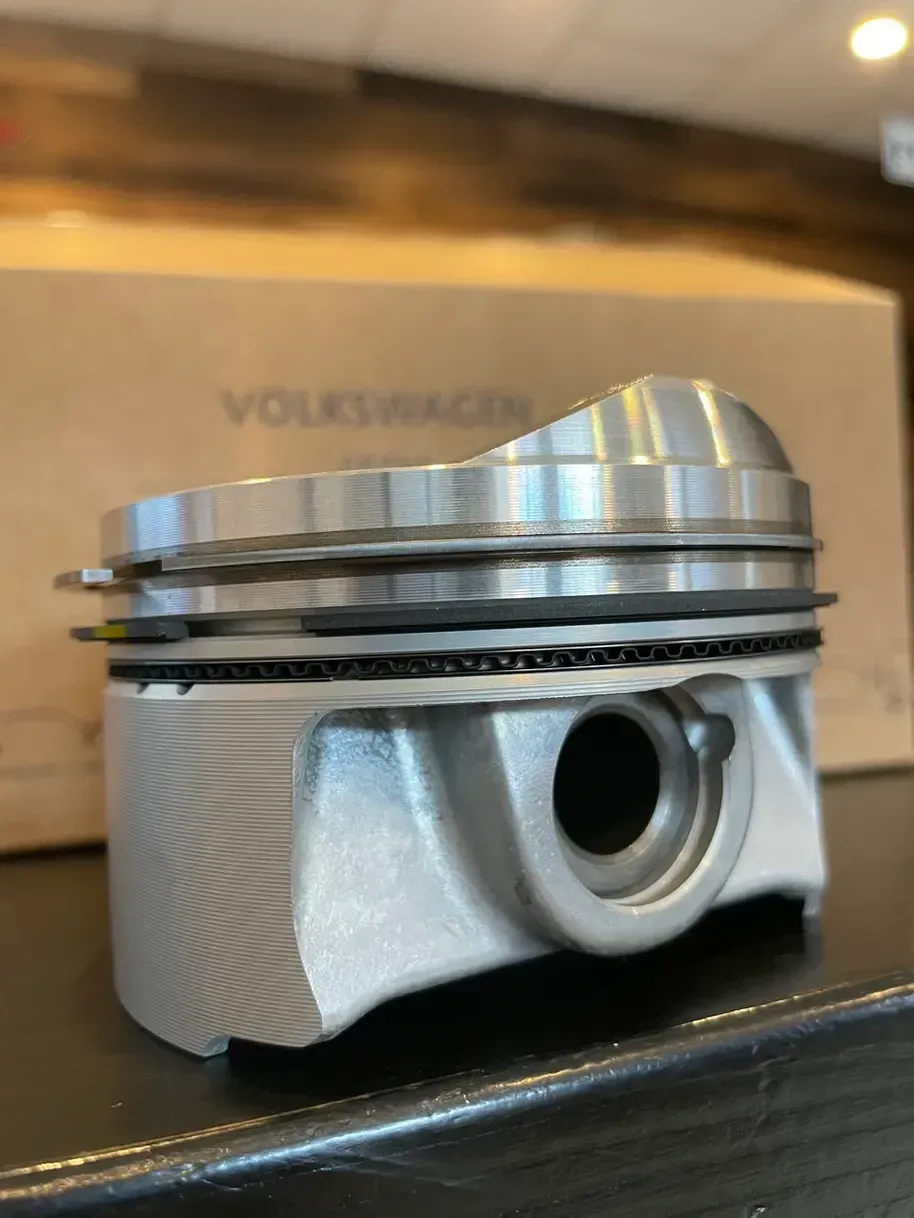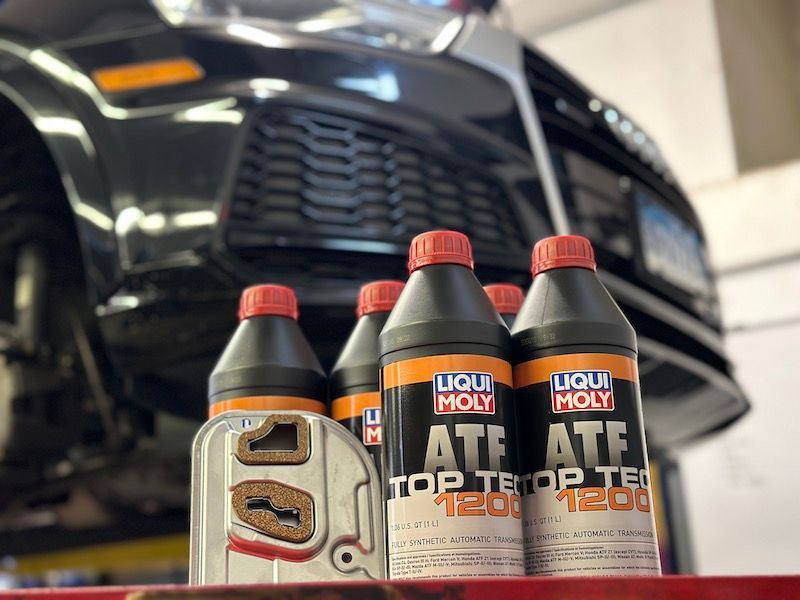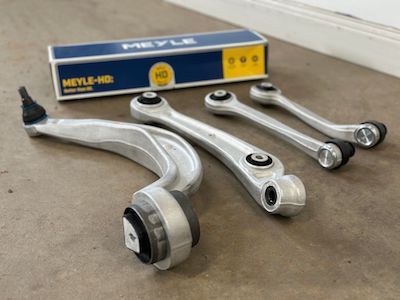Follow Us
10 Street Name, City Name
Country, Zip Code
555-555-5555
myemail@mailservice.com
Audi Piston Ring Repair - 4 Cylinder Engines
Watch This Job on YouTube
Follow along as we replace an Audi 4-Cylinder engine timing chain in our shop. You'll gain an understanding of the work and parts involved, and why you need a specialist for it.
Background
In internal combustion engines, the piston is a fast-moving metal component contained within a cylinder. Piston rings attached at the piston head make the piston tight. A piston’s purpose is to transfer force from expanding gas in the cylinder to the crankshaft via a piston rod. The intake, compression, combustion and exhaust processes (the ‘4-stroke’ cycle) take place above the piston in the cylinder head, which forces the piston to move up and down within the cylinder, causing the crankshaft to turn. Each piston experiences tremendous amounts of force and heat during normal engine operation.
The Issue
Due to a combination of manufacturing and materials issues, the piston rings in some engines fitted to model years 2009-2015 Audis with the 4-cylinder EA888 engines fail. Specifically, they tend to wear prematurely, not sealing the combustion chamber properly, and sending microscopic parts of the ring all over the engine. This leads to, at best excessive oil consumption, and and worst, engine failure.
Symptoms
- Excessive oil consumption. While every engine normally consumes a certain amount of oil due to the lubricant properties and function of oil inside the engine, it is normally considered that a rate above 1 qt/lt of oil every 1,000 miles is excessive. A message. reading ‘Add oil, max 1 lt’ with the yellow oil can in between oil services should be a warning sign.
- Increased fuel consumption
- At the worst, engine failure, as pieces from the piston rings have traveled inside the engine and caused scoring in the cylinder walls, or premature complete engine failure.
The Repair
The only and definitive solution is to replace the piston rings, and ideally, the pistons as well. This is a very delicate and time-consuming job that is best left to a trained specialist such as CarHavn. To successfully perform this repair, three factors come into play:
- A very experienced master mechanic
- The perfect parts, either original Audi or OEM (Rheinmetall AG manufactures pistons for Audi)
- A factory laptop or scan tool, to program and adjust the engine after the repair
The job involves removing the engine from the car, removing the valve cover, cylinder head, and oil pan, disassembling the entire timing system, extracting the pistons, removing the piston rods, replacing the pistons and rings, and re-assembling the entire engine again.
We at CarHavn have extensive experience with this delicate job. We advise our customers to maximize the benefit of the labor, and replace also the following components and no additional labor cost:
- Timing chain, guides, tensioners
- Head gasket and bolts
- Camshaft bridge
- Valve cover gaskets
- Oil filter housing gaskets
- Water pump and thermostat, with the upgraded metal impeller version
- Obviously oil, oil filter, and coolant
Don't let your engine experience catastrophic failure due to bad piston rings.
Content Written By
The CarHavn Euro Team. Ramiro, our ASE Certified Service Advisor, left a 15-year career in Quality to start his dream business 10 years ago. A gearhead since age 5, his family has owned Euro cars for 3 generations, from an MB Ponton treasured by his grandfather to the 3 Audis and 1 BMW the family owns.
As a team, we have over 50 years of experience in Euro repair. We have extensive experience in engine, transmission, suspension, body, and electronic diagnostics and repair. We exclusively work in Audi/VW/Porsche SUVs, BMW/MINI, Mercedes-Benz, and Jaguar/Land Rover. We attend training several times a year to keep up to date in repair techniques and tools. Our reviews speak for themselves!
